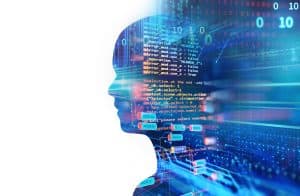 In a recent roundtable event hosted by Overbond, a tech firm specialising in fixed income analytics, panellists concluded that increased use of technology was moving traders to manage the execution as opposed to take part in it.
In a recent roundtable event hosted by Overbond, a tech firm specialising in fixed income analytics, panellists concluded that increased use of technology was moving traders to manage the execution as opposed to take part in it.
The discussion delved into the key impacts of automation within fixed income, in particular, how it could shape the future role of traders themselves.
Among the panellists was Adrian Dacruz, vice president, strategic market development capital markets at Deutsche Börse who touched on the positive correlation between automated solutions and individuals being freed up to focus on higher value tasks, such as strategy and building client relationships – “working on managing the execution process rather than partaking in it”.
He added that, “Automation allows us to reduce the biases that exist in the investment sphere because of us as humans. Day to day behaviours, like herd behaviour, bias, and over confidence is reduced with an automated strategy. Humans act on emotion, but a system acts on what it’s told to do, which is a key factor.”
Andrew Kovacs, director of product management EMEA at Charles River Development agreed, suggesting that, “There is a need for technical expertise to evaluate the resulting trades that have been processed through this automation process”.
If everything is done manually, said Kovacs, “You have a very deep understanding of every trade you’ve actually executed as opposed to when you pass things through a machine. Looking for ways to improve or optimise the process on the trading desk requires new skills to make sure the quality of the trades remain high.”
He went on to say: “The skills that traders have today may not lend themselves particularly well to this exercise, so trade desks may have to bring in talent to complement the process.”
Other speakers included Lu Fu, managing director, head of eSales and digital transformation EMEA at Mizuho and James Bunting, global head of partnerships at Finsemble.
Interoperability is essential
The panel established that automation is a multi-faceted, dynamic problem to solve. A large portion of the discussion centred around interoperability, which the speakers agreed is vital to the future of the space.
Bunting said ensuring applications and services were working together cohesively was essential “even though they’ve never been designed to.”
For Fu, one of the most important considerations from a trading desk perspective was to ensure that users have a say in how they want their workspace to look and operate in order to increase efficiency.
“We need to upgrade the trading desk skill set in a way people feel comfortable in knowing how the systems work together now […] the majority of the time end-users struggle to see how systems interact. It’s a long journey and as Andrew pointed out a lot of time is [spent] training on the desk, and hiring more diverse types of talent on the desk to help with this,” Fu said.
Panellists also discussed what credit trade workflow could look like in the next two years, with Kovacs highlighting how the line between traders and PM roles is becoming increasingly blurred as the traders’ realm opens up.
“Years ago, traders had control over all the data related to trading activity, but now PMs have insight into a lot of information such as liquidity and pricing and they might use that to help inform their security selection process,” he noted. “Now more than ever, PMs are helping make decisions about which trades to automate” – a situation which he stated will only continue to be more prevalent as automation increases.